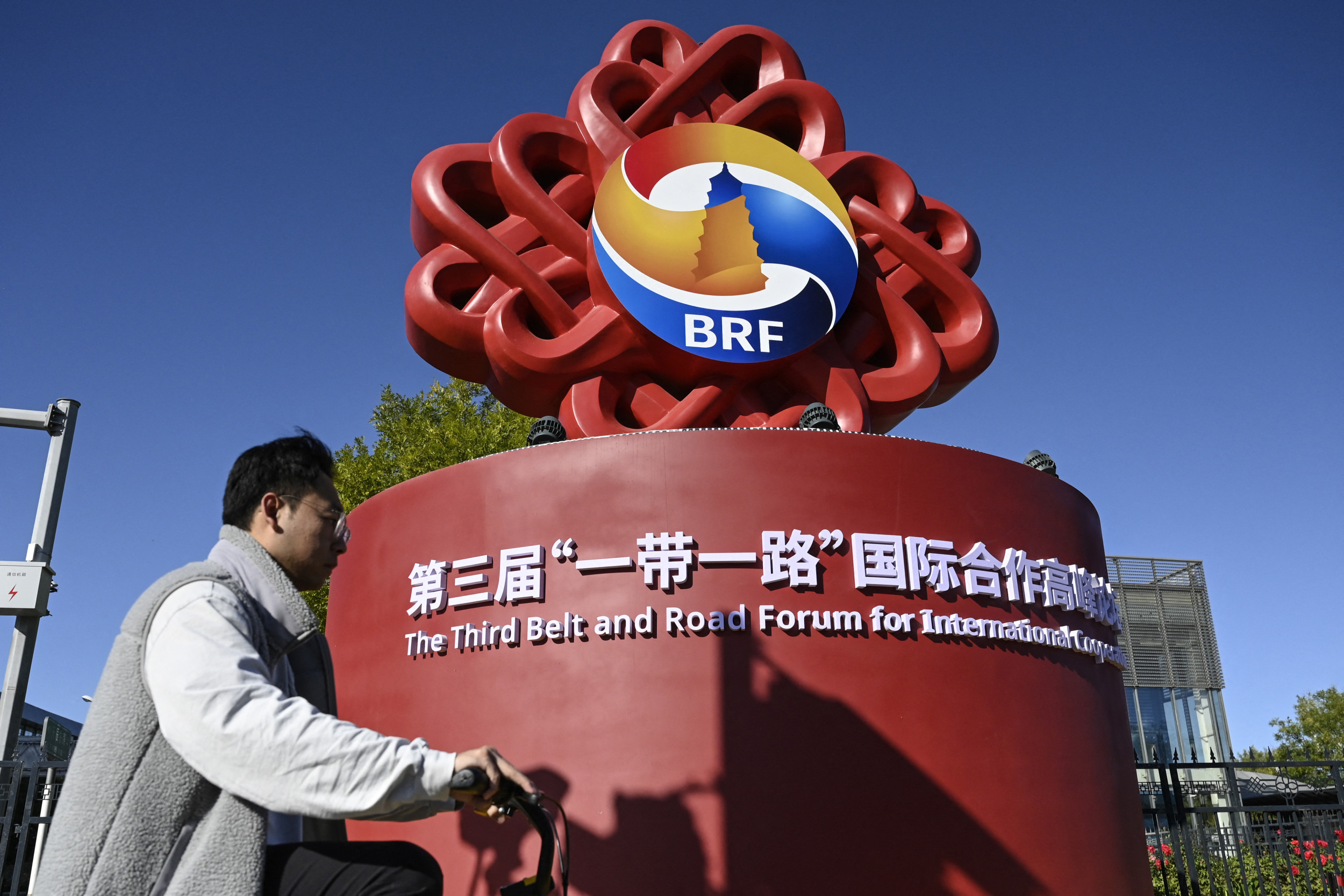Beijing is set to host Russian President Vladimir Putin to mark the 10th anniversary of the Belt and Road Initiative (BRI) as Chinese President Xi Jinping welcomes leaders from “China-friendly” countries.
Putin has taken the lead in praising BRI in an interview with Chinese state media.
“In my opinion, this is the key difference between the Belt and Road Initiative proposed by Xi Jinping and certain projects promoted by other countries with colonialist overtones,” Putin told state broadcaster China Media Group’s Leaders Talk program.
BRI is China’s $1 trillion infrastructure funding program which provides loans to countries for building roads, railways and other types of infrastructure. BRI is considered an alternative to U.S.-led financial institutions such as World Bank and the International Monetary Fund.
Representatives from 130 countries and 30 international organizations are set to participate in the forum starting Tuesday. Some countries are sending junior ministers or diplomats instead of their heads of state.
Meanwhile, Beijing isn’t leaving any stone unturned to tell the story of BRI as it turns 10. Xi wants to turn the signature infrastructure project into an exclusive geopolitical club.
For Xi, the BRI projects are not merely roads and bridges leading somewhere but a projection of Chinese power in aspirational Beijing-centered world order.
“Standing at a new historical starting point, the joint construction of the Belt and Road Initiative faces important opportunities and an increasingly complex international environment,” the Chinese Communist Party newspaper People’s Daily said.
“By unswervingly advancing the high-quality development of the Belt and Road Initiative and striving to build a road to peace, prosperity, openness, green, innovation, and civilization, we will surely be able to contribute to the great rejuvenation of the Chinese nation.”
On the Chinese social media platform Weibo, the government’s messaging celebrates the initiative and signals Beijing’s new geopolitical heft in the world.
The hashtag “Belt and Road Initiative decade” was the number one trend on Monday, with more than 360 million views. The BRI was given special coverage across Chinese social media platforms and search engines in a push to create a positive environment before the summit.
But the initiative faces geopolitical headwinds. Beijing is trying to rebrand the BRI into a “smaller and greener” initiative as scrutiny about its lending practices has grown in its 10 years.
One Chinese official, speaking on condition of anonymity, told Bloomberg that BRI almost died, mainly because of the COVID-19 pandemic and China’s economic problems. But it has suffered other significant setbacks despite the growing global reach of its projects from across Latin America to Asia, so Beijing hopes the anniversary summit will breathe fresh life into the initiative.
The China-Pakistan Economic Corridor was supposed to be the crowning achievement of the BRI, but after investing $65 billion, Islamabad’s economic woes have only grown.
Italian Prime Minister Giorgia Meloni suggested in September that Rome may leave the BRI in the coming months. However, the decision has yet to be made.
Another tragic story is that of Sri Lanka. According to experts, the island nation took unsustainable debt levels from Beijing, which may have led to the country going bankrupt and seeing a government collapse. Sri Lanka owes about 52 percent of its external debt to Beijing, a portion of which will be covered under a debt restructuring deal.
The U.S. will watch Beijing’s moves as Xi tries to set the triumphalist tone for the BRI’s future.
“As the BRI marks its tenth anniversary, the legacy it leaves is a cautionary tale of lofty rhetoric and unwelcome results,” U.S. Ambassador to Japan Rahm Emanuel wrote on X, formerly Twitter. “China’s BRI casts long shadows of debt and dependency. When the bill comes due, China leaves developing countries dangling in a sea of debt, with their sovereignty in doubt.”
Xi and Putin skipped the G20 Summit in New Delhi last month. Xi’s decision has been widely seen as Beijing’s slow shift away from global institutions led by the U.S. while forging its alternative international forums.
The forum will take place in the shadow of the Israeli-Palestinian conflict as Beijing has sought to push for a two-state solution.
Newsweek reached out to the Chinese Embassy in Washington, D.C., by email for comment.

